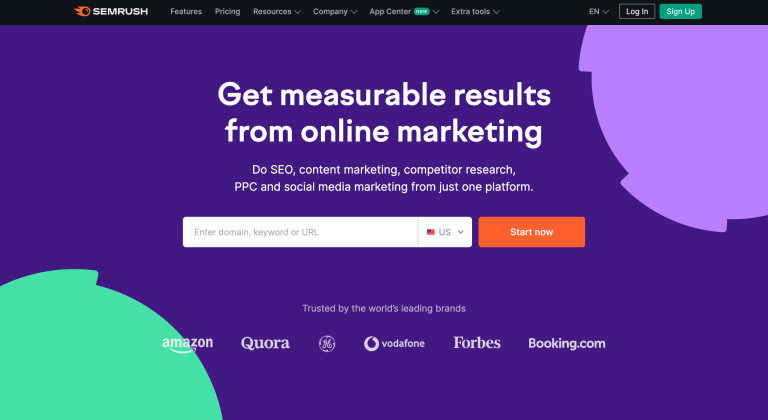The Ultimate Guide to Understanding SEO Keywords
Introduction
In the realm of digital marketing, understanding SEO keywords is paramount for driving targeted traffic to your website and achieving online success. As search engines continue to evolve and user behavior shifts, it’s crucial to stay ahead of the curve and leverage the power of keywords effectively. This comprehensive guide will delve into the intricacies of SEO keywords, equipping you with the knowledge and strategies to enhance your website’s visibility, attract your ideal audience, and outperform your competitors.
Table of Contents
- What are SEO Keywords?
- The Importance of SEO Keywords
- Types of SEO Keywords
- Keyword Research Process
- On-Page SEO Keyword Optimization
- Off-Page SEO and Link Building
- Measuring and Tracking Keyword Performance
- Keeping Up with Keyword Trends
- Best Practices for SEO Keywords
What are SEO Keywords?
SEO keywords, also known as search engine keywords or focus keywords, are the words and phrases that people type into search engines when looking for information, products, or services online. These keywords act as signposts, guiding search engines to understand the relevance and context of your website’s content.
When users enter a query into a search engine, the engine scans its index to find the most relevant and authoritative web pages that match the keywords used in the search. The higher your website ranks for relevant keywords, the more likely you are to attract targeted traffic and potential customers.
The Importance of SEO Keywords
Incorporating SEO keywords into your website’s content and strategy is crucial for several reasons:
- Increased Visibility: By optimizing your content for relevant keywords, you improve your chances of appearing higher in search engine results pages (SERPs), making it easier for your target audience to find your website.
- Targeted Traffic: When you rank well for keywords that align with your products or services, you attract visitors who are actively searching for what you offer, increasing the likelihood of conversions and sales.
- Improved User Experience: By understanding the keywords your audience uses, you can create content that directly addresses their needs and queries, providing a better user experience and fostering brand loyalty.
- Competitive Advantage: Effective keyword research and implementation can give you a significant edge over competitors who are not optimizing their content for the right keywords.
- Measurable Results: Keywords provide a quantifiable metric for tracking your SEO efforts, allowing you to measure the success of your campaigns and make data-driven decisions.
Types of SEO Keywords
Not all keywords are created equal. Understanding the different types of SEO keywords can help you develop a more targeted and effective keyword strategy.
Broad Keywords
Broad keywords, also known as “head terms,” are general, one or two-word phrases that typically have high search volumes but also high competition. Examples include “shoes,” “travel,” or “insurance.” While these keywords can drive significant traffic, they may not attract the most qualified leads due to their broad nature.
Long-Tail Keywords
Long-tail keywords are more specific, often consisting of three or more words. They tend to have lower search volumes but higher conversion rates, as they are more closely aligned with the user’s intent. Examples include “men’s running shoes size 10” or “best family-friendly beach resorts in Florida.”
Local Keywords
Local keywords are particularly important for businesses with a physical presence or those targeting specific geographic areas. These keywords typically include location-based terms, such as “Chicago plumber” or “Italian restaurant near me.”
Informational Keywords
Informational keywords are used by people seeking information or answers to specific questions. These keywords often commence with words like “how,” “what,” “why,” “who,” or “best.” Examples include “how to start a blog” or “what is the keto diet.”
Commercial Keywords
Commercial keywords indicate a user’s intent to make a purchase or take a specific action. These keywords often include terms like “buy,” “purchase,” “discount,” or “deal.” Examples include “buy iPhone 13” or “best deals on summer vacations.”
For a more extensive list and definitions of SEO-related terms, view our SEO glossary.
Keyword Research Process
Effective keyword research is the foundation of a successful SEO strategy. Here’s a step-by-step process to help you identify the most relevant and valuable keywords for your business:
Understand Your Target Audience
Before you begin your keyword research, it’s essential to have a deep understanding of your target audience. Identify their pain points, interests, and the language they use when searching for products or services like yours. This insight will guide your keyword selection and help you create content that resonates with your audience.
Identify Seed Keywords
Start by brainstorming a list of broad, relevant keywords related to your business, products, or services. These “seed keywords” will serve as the foundation for your research and help you uncover additional, more specific keywords.
Utilize Keyword Research Tools
While manual research can provide valuable insights, leveraging keyword research tools can significantly streamline the process and uncover hidden opportunities. Popular tools like Google Keyword Planner, Ahrefs, SEMrush, and Moz Keyword Explorer can provide valuable data on search volumes, competition levels, and related keywords.
Analyze Search Intent
As you evaluate potential keywords, it’s crucial to consider the user’s search intent. Are they looking for informational content, transactional opportunities, or something else entirely? By aligning your keywords with the user’s intent, you can create content that better meets their needs and improves your chances of ranking well.
Evaluate Keyword Difficulty
While high search volume is desirable, it’s also important to consider the competition level for each keyword. Keyword difficulty scores, provided by most keyword research tools, can help you assess the level of competition and determine which keywords are feasible targets for your website.
On-Page SEO Keyword Optimization
Once you’ve identified your target keywords, the next step is to optimize your website’s content and structure to signal their relevance to search engines. Here are some key on-page optimization strategies:
Title Tags
Title tags are one of the most important on-page elements for SEO. They not only tell search engines what your page is about but also serve as the clickable headline in search results. Include your primary keyword in the title tag, preferably toward the beginning, while keeping it natural and compelling.
Meta Descriptions
While meta descriptions don’t directly impact rankings, they can influence click-through rates from search results. Craft compelling, keyword-rich meta descriptions that entice users to click through to your website.
Content Optimization
Incorporate your target keywords throughout your website’s content, including headings, body text, and image alt text. However, be careful not to overuse keywords, as this can be perceived as keyword stuffing and negatively impact your rankings.
Internal Linking
Strategic internal linking not only helps search engines understand the structure and relevance of your website but also distributes link equity throughout your pages. Use descriptive, keyword-rich anchor text when linking to relevant pages within your website.
Image Optimization
Optimizing images with descriptive file names and alt text can improve their visibility in image search results and provide additional context for search engines. Include relevant keywords in your image file names and alt text, but avoid keyword stuffing.
Off-Page SEO and Link Building
While on-page optimization is crucial, off-page SEO factors, such as link building, also play a significant role in your website’s rankings. Search engines view high-quality, relevant backlinks as a vote of confidence in your website’s authority and trustworthiness.
Engage in ethical link building practices, such as creating shareable, valuable content, reaching out to industry influencers, and building relationships with other websites in your niche. Avoid black hat tactics like link farms or paid link schemes, as these can result in penalties from search engines.
Measuring and Tracking Keyword Performance
Regularly monitoring and analyzing the performance of your target keywords is essential for refining your SEO strategy. Use tools like Google Search Console and Google Analytics to track your website’s rankings, organic traffic, and conversions for specific keywords.
Identify which keywords are driving the most valuable traffic and conversions, and adjust your content and optimization efforts accordingly. Additionally, keep an eye on your competitors’ rankings and strategies to stay ahead of the curve.
Keeping Up with Keyword Trends
Search trends and user behavior are constantly evolving, which means that your keyword strategy should be regularly reviewed and updated. Stay informed about the latest search engine algorithm updates, consumer trends, and industry developments that could impact your target keywords.
Regularly conduct keyword research to identify new opportunities and adjust your strategy accordingly. Additionally, pay attention to seasonal trends and events that may influence search behavior and create content tailored to those timely topics.
Best Practices for SEO Keywords
To ensure the long-term success of your keyword strategy, follow these best practices:
- Focus on User Intent: Always prioritize creating content that aligns with the user’s search intent, rather than simply stuffing keywords into your pages.
- Maintain Relevance: Ensure that your target keywords are highly relevant to your business, products, or services.
- Balance Broad and Long-Tail Keywords: Incorporate a mix of broad and long-tail keywords to capture different stages of the user’s search journey.
- Stay Up-to-Date: Regularly review and update your keyword strategy to reflect changes in search behavior, algorithm updates, and industry trends.
- Measure and Refine: Continuously monitor the performance of your target keywords and adjust your strategy based on data-driven insights.
- Prioritize Quality Over Quantity: Focus on creating high-quality, valuable content that naturally incorporates your target keywords, rather than keyword stuffing.
By following these best practices and staying committed to an ongoing, data-driven keyword strategy, you can improve your website’s visibility, attract your ideal audience, and achieve long-term success in the ever-evolving world of search engine optimization.
If you’re looking to outrank your SERP competitors in your keyword searches, check out BlitzBear. Our AI-powered SEO software writes new content and optimizes your existing articles with SEO improvements based on your SERP competitors.







